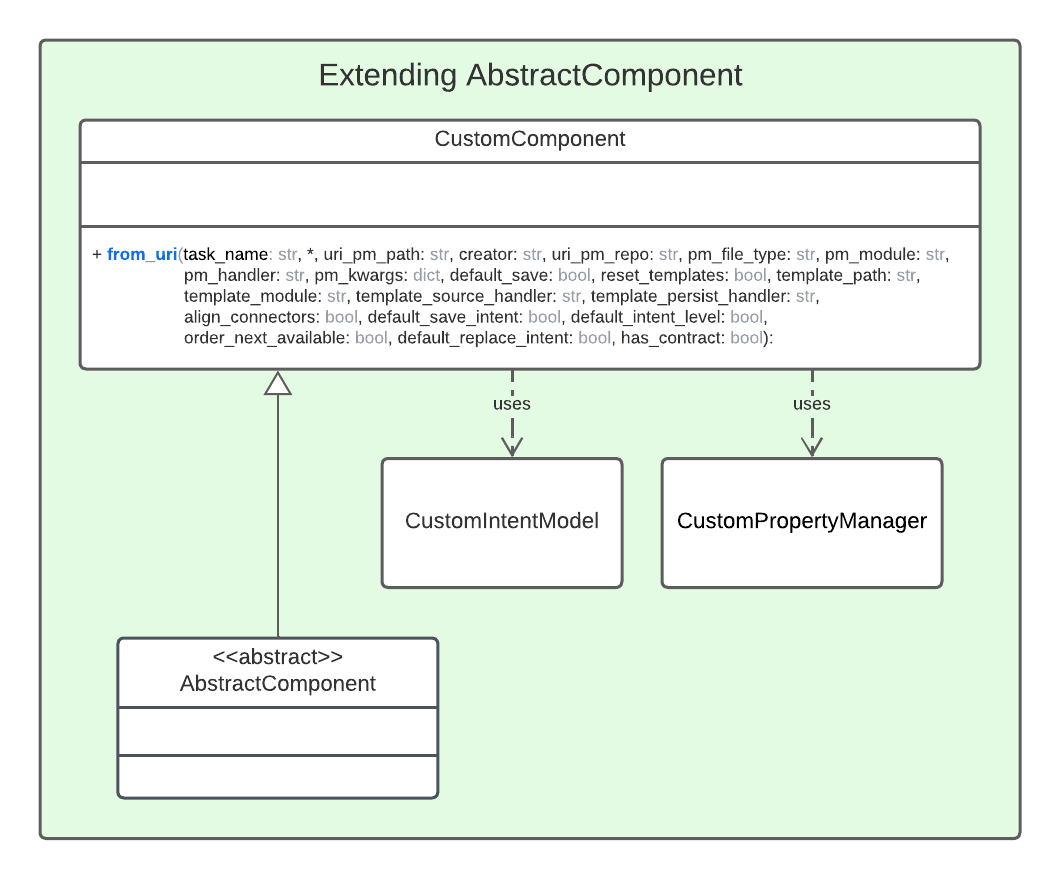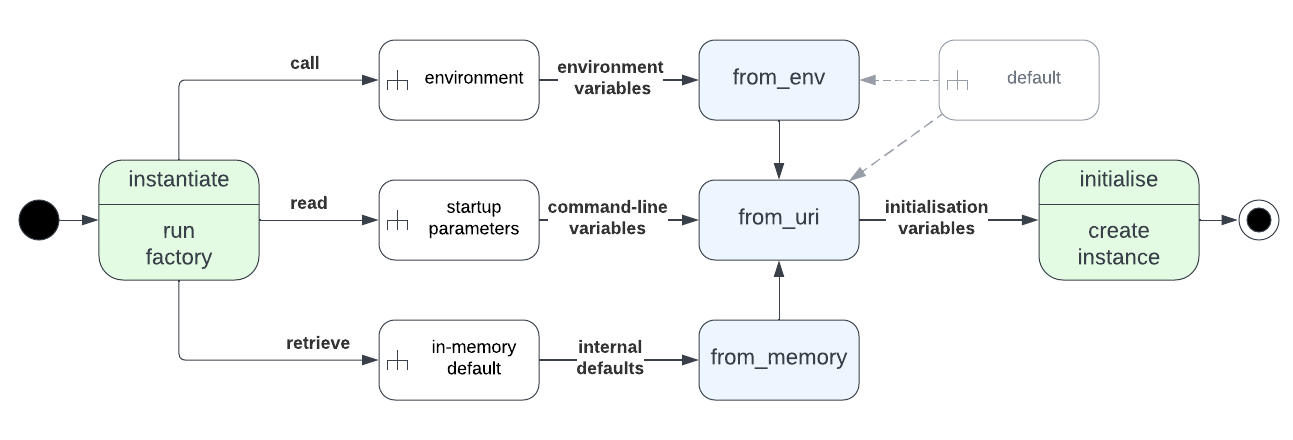AbstractComponent
The AbstractComponent class is a foundation capability class when extending or creating a Project Hadron
capability. It provides an encapsulated view of the Property Management and Intent Modeling as a first class object.
In other words the concrete implementation of the PropertyManager and IntentModel are instantiated and
accessed through this class object.
Because this package uses pandas DataFrame as its canonical, rather than inherit directly from AbstractComponent
a new parent abstraction has been created, mostly for reporting where it dict are converted to the local
canonical.

So when creating a new component class you can either inherit from an existing capability, extending its current
tasks, or create a new capability and define its own tasks by inheriting from the AbstractCommonComponent,
for example:
class CustomCapability(AbstractCommonComponent):
Initialising a capability requires a complex setup so for convenience there are three factory initialisation methods
available that make this task straight forward, from_env(...), from_memory(...) and from_uri(...) the
first two being concrete methods. and the third abstract. from_env(...) and from_memory(...) are dependants
of from_uri(...), giving alternative entry options. All three initialises the concrete implementation of
AbstractPropertyManager and AbstractIntentModel classes and use the parent _init_properties(...)
methods to set the properties connector.

fig: capability instantiation
When creating the concrete class the from_uri(...) abstraction must be implemented as part of the extension of a
capability or the implementation of a new capability through the AbstractComponent. The following method can be
used as a template replacing the two <<capability_name>> with the capability name which should, by convention,
match the name of your class.
@classmethod
def from_uri(cls, task_name: str, uri_pm_path: str, creator: str, uri_pm_repo: str=None,
pm_file_type: str=None, pm_module: str=None, pm_handler: str=None, pm_kwargs: dict=None,
default_save=None, reset_templates: bool=None, template_path: str=None, template_module: str=None,
template_source_handler: str=None, template_persist_handler: str=None, align_connectors: bool=None,
default_save_intent: bool=None, default_intent_level: bool=None, order_next_available: bool=None,
default_replace_intent: bool=None, has_contract: bool=None):
pm_file_type = pm_file_type if isinstance(pm_file_type, str) else 'json'
pm_module = pm_module if isinstance(pm_module, str) else cls.DEFAULT_MODULE
pm_handler = pm_handler if isinstance(pm_handler, str) else cls.DEFAULT_PERSIST_HANDLER
# TODO: Replace <<capability_name>> with your class name. This assumes the IntentModel and PropertyManager
# follow the recommended prefix naming convention
_pm = <<capability_name>>PropertyManager(task_name=task_name, creator=creator)
_intent_model = <<capability_name>>IntentModel(property_manager=_pm, default_save_intent=default_save_intent,
default_intent_level=default_intent_level,
order_next_available=order_next_available,
default_replace_intent=default_replace_intent)
super()._init_properties(property_manager=_pm, uri_pm_path=uri_pm_path, default_save=default_save,
uri_pm_repo=uri_pm_repo, pm_file_type=pm_file_type, pm_module=pm_module,
pm_handler=pm_handler, pm_kwargs=pm_kwargs, has_contract=has_contract)
return cls(property_manager=_pm, intent_model=_intent_model, default_save=default_save,
reset_templates=reset_templates, template_path=template_path, template_module=template_module,
template_source_handler=template_source_handler, template_persist_handler=template_persist_handler,
align_connectors=align_connectors)
Once created, inheritance provides enough functionality and access to utilise this first class method but
dependency requires PropertyManager and IntentModel are also extended.
As a reminder, the new component manages connectivity through the AbstractConnectorContract providing a
communication broker between external data stores and the internal canonical of the component.
To understand more about Connector Contracts and how to write your own, ensure your video quality is set to the highest quality and watch the following short video: View of a Connector Contract